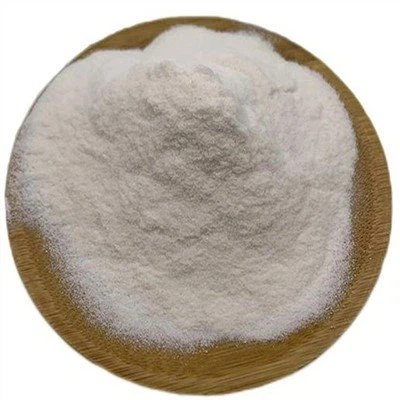| SPECIFICATION |
| PRODUCT NAME | PROTEASE(ACID) |
SOURCE |
ASPERGILLUS NIGER(FERMENT) |
REMARKS: This product does not contain ANY ALLERGEN | |||
ITEM |
TEST STANDARD |
RESULTS |
|
ACTIVITY OF PROTEASE ≥ |
20000 SAPU/G |
FCC |
|
LOSS OF DRYING ≤ |
8% |
GB5009.3 |
|
PARTICLE SIZE |
95% pash80mesh |
LASER METHOD |
|
APPEARANCE |
Whit to creamy |
VISUAL |
|
LEAD (PB) MG/KG ≤ ≤ |
5 |
GB/T5009.11 |
|
ARSENIC(AS) MG/KG ≤ ≤ |
3 |
GB/T5009.12 |
|
OTAL VIABLE COUNT(CFU/G)≤ ≤ |
10000 |
GB4789.2 |
|
COLIFORM GROUP(CFU/G) ≤ ≤ |
30 |
GB4789.4 |
|
ESCHERICHIA COLI(CFU/G) < < |
10 |
GB4789.38 |
|
SALMONELLA(25G) |
NEGATIVE |
GB4789.10 |
|
ANTIBACTERIAL ACTIVITY |
NEGATIVE |
GB4789.15 |
|
Shelf Life: 24 months when properly stored. Stored Humidity Protected ,At TemperatureBelow 25℃
Protease CAS:9014-01-1
Protease PU is a general term for a class of enzymes that hydrolyze protein peptide chains. According to the way they degrade polypeptides, they are divided into two categories: endopeptidases and telopeptidases. The former can cut the large molecular weight polypeptide chain from the middle to form prions and peptones with smaller molecular weights; the latter can be divided into carboxypeptidase and aminopeptidase, which respectively remove the peptide from the free carboxyl terminus or free amino terminus of the polypeptide one by one. Chain hydrolysis produces amino acids.
Proteases can be classified into serine proteases, thiol proteases, metalloproteases and aspartic proteases according to their active centers and optimum pH. According to the optimum pH value of its reaction, it is divided into acidic protease, neutral protease and alkaline protease. Proteases used in industrial production, mainly endopeptidases。
Proteases PU are widely found in animal offal, plant stems and leaves, fruits and microorganisms. Microbial proteases are mainly produced by molds and bacteria, followed by yeast and actinomycetes.
Proteases are widely distributed, mainly in the digestive tract of humans and animals, and are abundant in plants and microorganisms. Due to the limited animal and plant resources, the industrial production of protease preparations is mainly prepared by fermentation of microorganisms such as Bacillus subtilis and Aspergillus terrestris.
Depilation and softening in the leather industry have made extensive use of protease, which not only saves time, but also improves labor hygiene conditions. Protease can also be used for silk degumming, meat tenderization, and wine clarification. It can be used clinically for medicinal purposes, such as treating dyspepsia with pepsin, treating bronchitis with acid protease, treating vasculitis with dreaded protease, and using trypsin and chymotrypsin to purify surgical purulent wounds and thoracic interstitium. Treatment of membrane adhesions. Enzyme laundry detergent is a new product in detergents. It contains alkaline protease, which can remove blood stains and protein stains on clothes. However, be careful not to touch the skin when using it, so as not to damage the protein on the skin surface and cause allergic phenomena such as rashes and eczema. .
http://www.china-naturebio.com/




 By certification
By certification 





